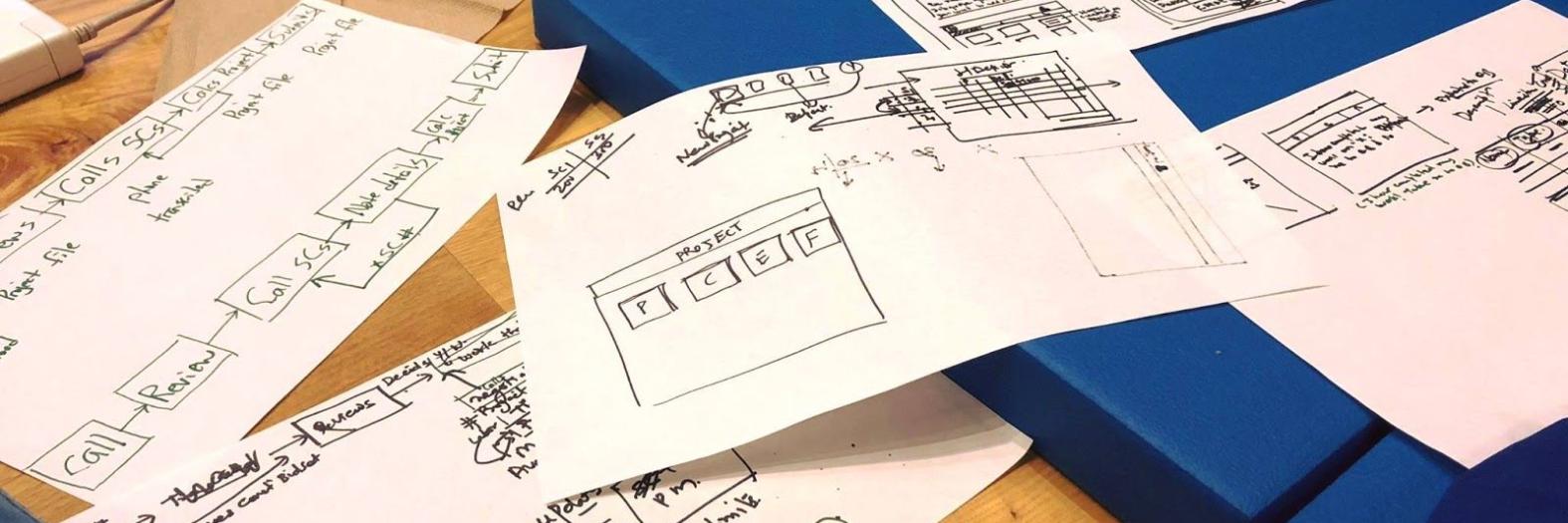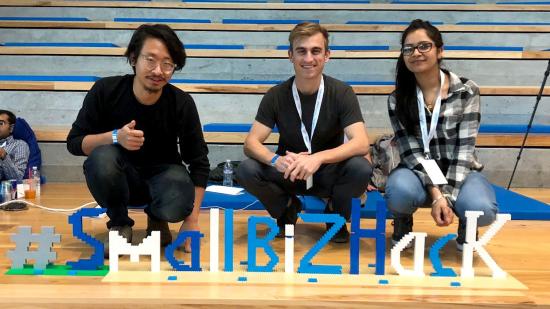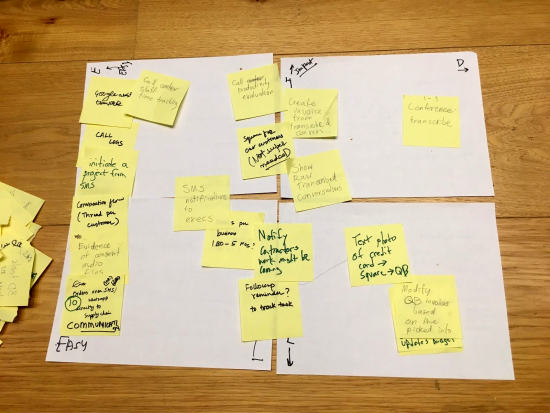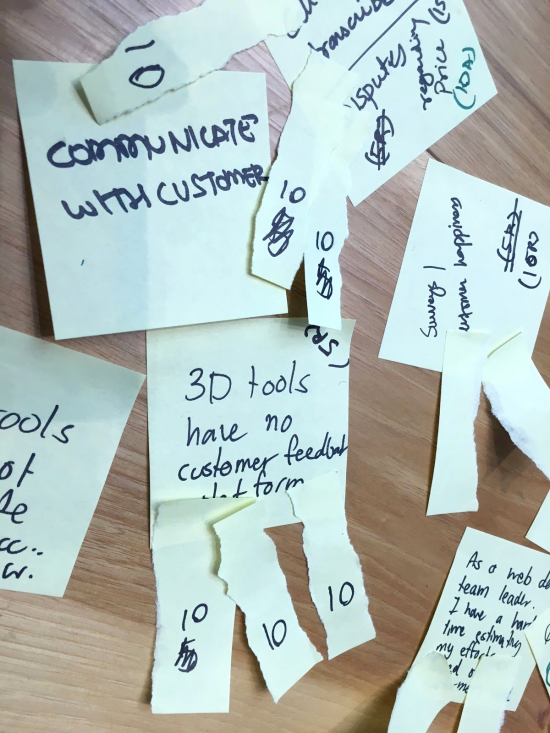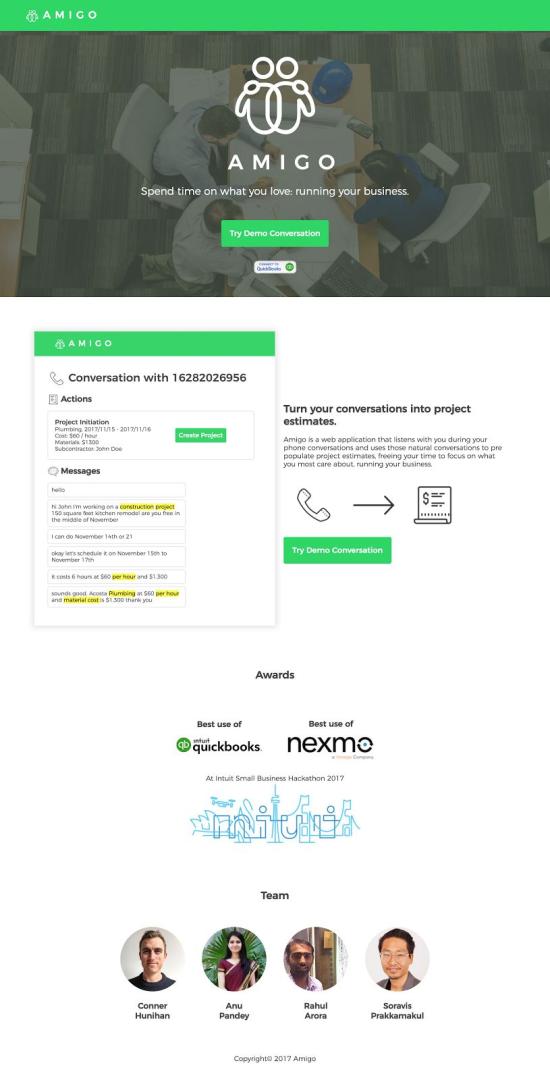Leveraging existing Nexmo, Google Cloud, and Google Assistant APIs they built a product to streamline workflow for small businesses.
Three first-year Master of Information Management and Systems students Conner Hunihan, Anu Pandey, and Soravis Prakkamakul participated in the Intuit Developer Small Business Hackathon on November 11 and 12, 2017, along with a fourth teammate Rahul Arora, a senior software engineer at Oracle. The team worked with the QuickBooks and Intuit Developer as they created solutions to help small businesses save time and energy. They won both the Nexmo API judges award and the QuickBooks API judges award.
The Intuit Developer Small Business Hackathon is an annual, two-day competition encouraging teams of up to four to create their own solutions to increase the efficiency of workflow for small businesses. The event is sponsored by Google Assistant, Nexmo, Intuit QuickBooks and Square. The students’ task is deliberately open-ended giving them the flexibility to solve whatever workplace issue they desired. Teams were encouraged to integrate QuickBooks APIs into their designs as they hacked throughout the night at Intuit’s main campus.
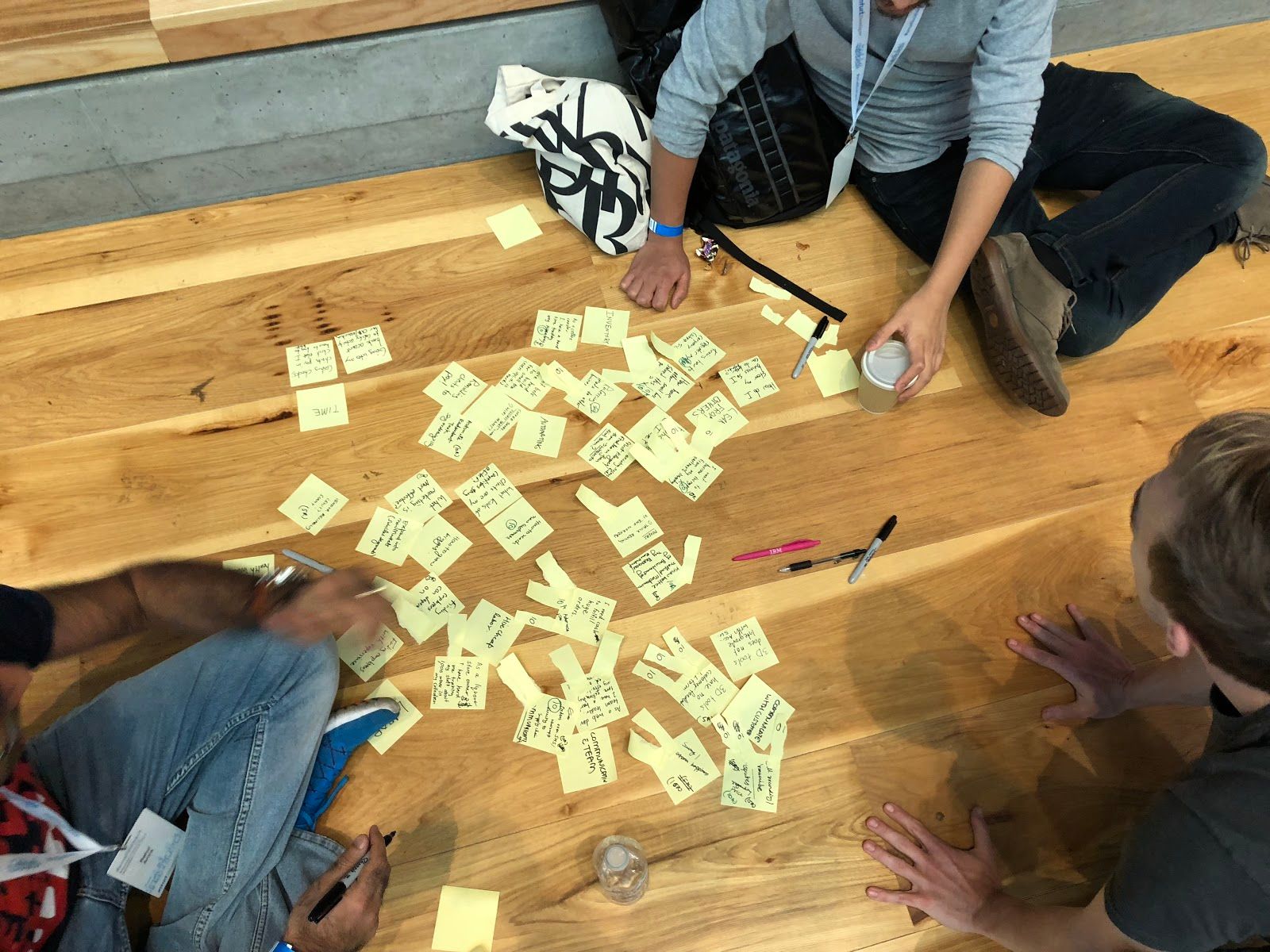
The Idea
After brainstorming over 50 possible concepts and delineating the best ideas based on their potential impact and feasibility, the I School team decided to create a user-centric platform for small businesses that negotiate over the phone. Specifically, they focused on helping the 2.4 million single-employee contracting firms simplify their invoices with their platform, Amigo:
“Amigo listens with you throughout the day, taking notes on your conversation,” Conner explained. “Amigo then summarizes those notes and prepopulates project invoices, which can be sent directly into your QuickBooks account. Soravis Prakkamakul summarized Amigo well, describing it as being ‘built on the shoulders of giants,’ as it utilizes the Nexmo API to record raw audio, the Google Cloud API to transcribe audio, the Google Assistant API to recognize intent, prepopulating estimated invoices with that intent on the Amigo dashboard (hand-coded by Soravis and Rahul), before sending those invoices to your QuickBooks account via the QuickBooks API.”
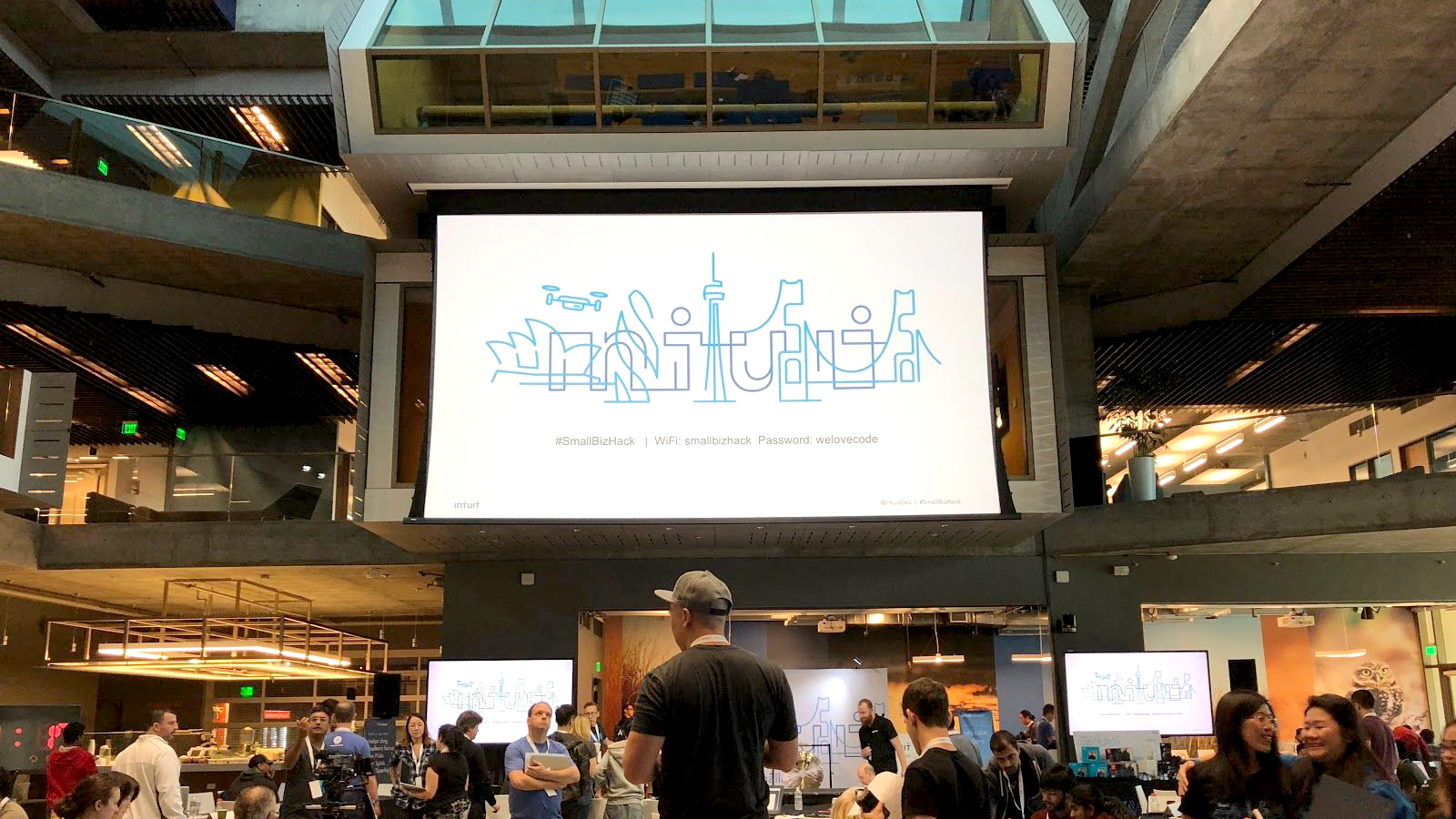
The Day
The day started with a welcome, followed by a round of lightning-talks to bring the teams up to speed on the tools of the hackathon, and how to use them in our hack. With the ringing of a giant gong the hacking began. The I School team initially diverged broadly to consider as many possibilities in our design as we could, before coming together to refine and iterate on a final idea. After deciding on a final product, Anu and Conner focused on crafting the branding, value proposition, and background knowledge to support the idea, while Soravis and Rahul coded the hack. The team worked through most of the night, stopping only for a food break and a few hours of sleep. “It was a great opportunity to test my capacity of working under pressure, learning to solve problems fast and focus on what’s really important,” said Anu. “For me, it was a super-condensed learning experience. It was a great hands-on learning experience, and I think what made it truly fun was working together with fellow MIMSies to create a cool product.”
“We found that our skills and interests perfectly complemented each other,” said Soravis. “It was a great pleasure working in the team.” The diversity of skills MIMS students bring to the classroom, and competitions like this one tends to be the tipping point that sets them apart from their peers. The inherently multidisciplinary nature of the MIMS program, and the value ascribed to both technical and non-technical expertise, mirrors the makeup of a successful team, like this one that combined talent in coding, designer, and business savvy.
The teammates practiced their presentation together, and in a dry run with judges, before pitching formally to the entire crowd that afternoon. Even before the team delivered their final pitch, a senior developer at Intuit approached them to discuss their idea.
Judges acknowledged the novelty of the team’s solutions and appreciated their integration of many pre-existing APIs. After presenting Amigo to a crowd of attendees at the Hackathon, the I School team was awarded the Nexmo API judges award and the QuickBooks API judges award. Both awards demonstrate the effectiveness and potential of this platform. The team left the competition proud of their achievements:
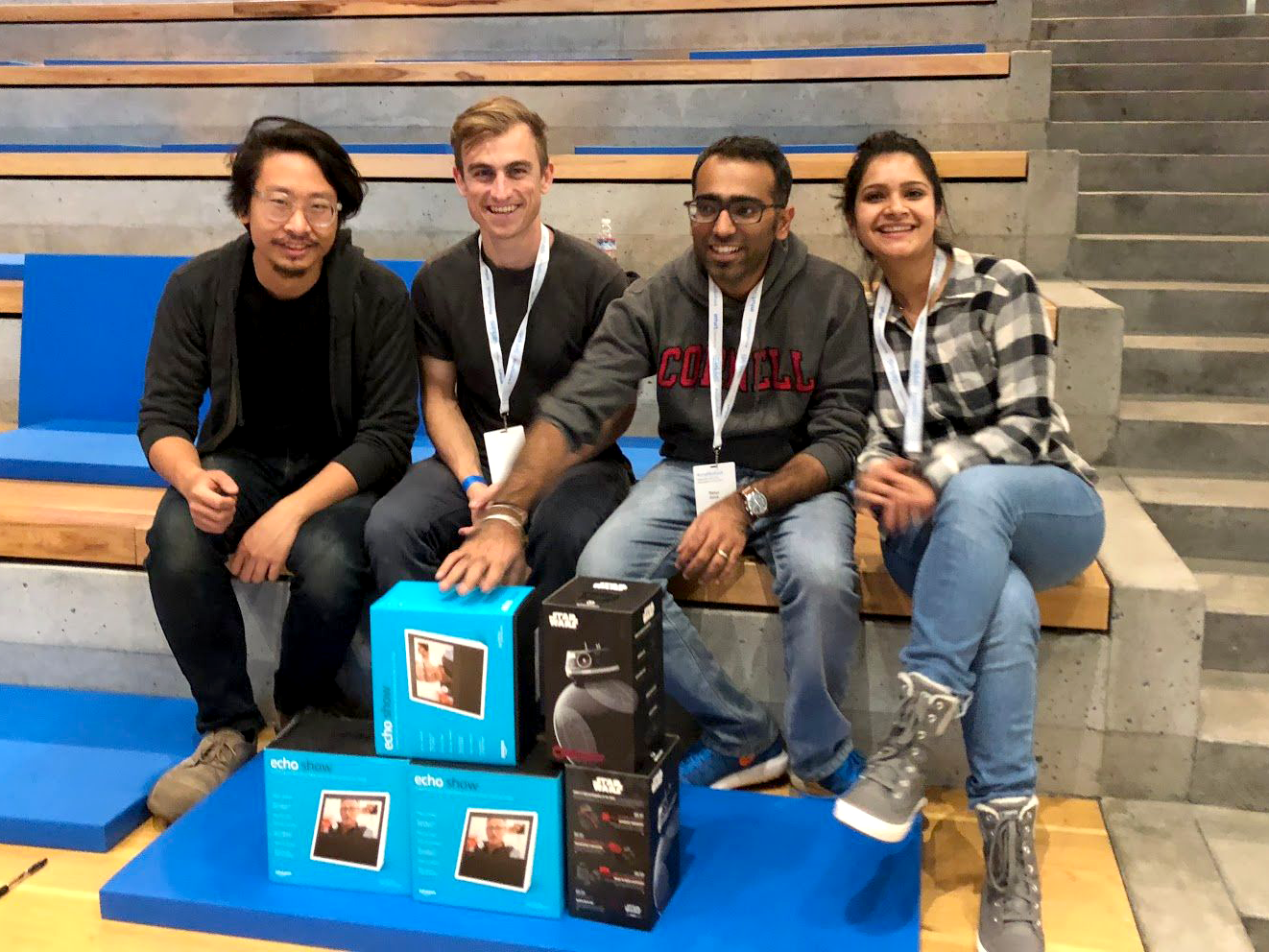
“I really value our interdisciplinary team and that we were able to deliver a truly innovative solution to help businesses save time,” Anu shared. “I think our design-centric approach towards the problem was what gave our team a shared understanding, made us committed towards our solution and helped us in creating an innovative solution. By reducing the amount of accounting that every small business needs to manage for themselves; our design idea saves them time, reduces their cognitive overload and allows them to focus on what they are best at doing: running the business.”
The team is interested in continuing to build the platform, and is exploring the possibility of turning Amigo into a startup.










